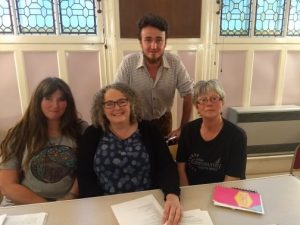
The latest Community Forum set up by Bridgwater Town Council was launched today and is to focus on Climate Change. Chaired by Cllr Julie Cordiner (Victoria) and assisted by Cllr Glen Burrows (Eastover) and Executive Portfolio Holder Cllr Li Gibson (Westover) the Forum met at Bridgwater Town Hall and was attended by members of the public and set out to develop a Climate Change Strategy for Bridgwater. Key speaker at this inaugural meeting was ecologist and wildlife release co-ordinator Jamie Kingscott from Secret World Wildlife Rescue, described by Cllr Cordiner as being ‘on the frontline of climate change’. Recommendations from the Forum will be taken forward by the Climate Change group of Town Councillors and put to the full council.
In the interests of openness and transparency a full report of the meeting is recorded below.
Introduction. Cllr Brian Smedley, Town Council Leader, welcomed people to the Forum explaining that Bridgwater Town Council had passed a motion to take steps to tackle the effects of climate change and now we wanted to take it to the community to help devise a way forward. The aims of these meetings would include raising awareness in order to reduce the effects of climate crisis, global heating, economic instability and natural catastrophe. To take steps to reduce carbon emissions and to seek direct measures that BTC could introduce or to exert influence on other Local Authorities and partner bodies. As a result of these meetings we would seek to develop a BTC strategy for tackling climate change.
Guest Speaker: Cllr Julie Cordiner,chairing the meeting, introduced the Guest Speaker- Jamie Kingscott, who, as an ecologist and Wildlife Release Coordinator from Secret World Wildlife Rescue was on the frontline of climate change.

JK said he was seeing a difference to wildlife as a result of loss of habitat due to interaction with humans. His job was to release rescued animals back into the wild or into a suitable habitat. As an example, they had dealt with some 400 gull chicks a year as these birds had moved into towns and cities where rooftops resembled cliffs but chicks were falling off the hot roofs. Fields and hedgerows had gone and these were very important in providing wildlife corridors. The removal of hedgerows had seen a 95% decline in hedgerows since the 1950s. At the same time there had been a massive increase in house building and road building. All of these created barriers for wildlife and put them in danger. Tarmac is not a natural habitat for anything. There had been increased examples of extreme weather events ranging from huge amounts of snow in March last year to near drought conditions in the summer where some animals couldn’t feed as the ground was too hard and animals were being dehydrated. Animals tend to migrate towards the poles when climates warm. The key issue is land-use and an increasing population causing a conflict between the natural environment and where people live.
NG said houses were often built too close together and this also provided a barrier for wildlife.
JK said gardens were good but enclosure was a bad thing and key wildlife needed to move freely such as birds, worms, bees and small animals. Connectivity was crucial and gravel was of no use at all.
ST said people need to change the way they live and that we should be building up not out and on brownfield not greenfield sites. He said a key issue was that we get the developments we do because of builder’s cash flow and selling cheaper houses.
JK agreed that it was good to build up.
LG said high-rise should be built with community spaces which could be beautiful
GB said the main danger was the motor car and especially people who had several cars. Instead we needed cheap, subsidised public transport. It was also the case that 9 out of 10 adverts are about cars. She felt housing was a secondary issue.
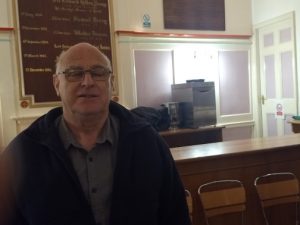
LG said housing developments now were like rabbit warrens which you can’t get public transport into thereby encouraging just cars. She felt public transport should be free or subsidised.
ST said people could get an extra holiday a year if they got rid of their extra cars.
NG said in cities like London public transport works but living in rural Somerset he has never had a public transport system which he could rely on to get to work.
MS said LA’s could do more to help by providing buses or by establishing park and ride projects such as at junction 24. He also felt Homes in multiple occupation had given rise to parking issues and that there should be central collection points for refuse in residential areas.
ST said this was a system used successfully in Portugal
JK said it would help wildlife if things were greener and wilder. We should leave roadside verges and not cut them or we should seed them with wildflowers. Its wrong to mow things to within an inch of their lives. Leave it alone. Plant stuff and leave it to grow.
Towards a Climate Crisis Strategy:
JC introduced several topics which could form the basis of a Climate Change strategy and asked for comment.
*Biodiversity-protecting wildlife habitats-Pesticides-encourage grassroots community projects such as gardens and orchards-plant based diets-tree cover/sponsor a tree-natural enhancement of green spaces and parks-natural food production
JS asked about areas such as Old Taunton Rd where there was overdevelopment and some wasteland areas and if we could set up community projects here
BS said that Westover councillors were working in that area with a resident group to provide community spaces including children’s play areas and so on.
LR said SCC were reducing the verge cutting due to cost savings
GT said he thought some of the wild and overgrown areas were natural havens and little gems
KP said it would be useful to find out about SCC pollinator strategy
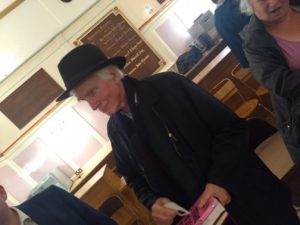
PS said Climate Change was an enormous challenge for all of us. Everyone was aware of it although some were denying it. Many people didn’t know how they could get involved or what they could do and we could set up a Climate Change info centre in a town centre premises for this purpose. He felt that as SDC has empty town centre premises these could be used for a social purpose such as how you could change your life and get involved in the ‘transition’. We could promote a food festival with advice on a plant-based diet.
JC said the project had to be about changing attitudes
MS said his IWA volunteers removed lots of rubbish from the canal and piggy hill thus helping wildlife but he was concerned that people disposed of rubbish in this way in the first place and felt fly-tipping was a major problem
NG said that plants can de-pollute the environment. He was also concerned that the big news stories were about saving the rainforest or animals in Africa when they should focus on local issues and campaigns
JK said that Spring Watch talked about British wildlife and was a very useful show and lamented the fact that David Attenborough did shows called ‘Africa’ and not ‘Bridgwater’.
DR urged planting of native food products such as nut bushes and fruit trees in communal locations. Trees are important for biodiversity and also for flood prevention as they suck up the water.
ST noted that SDC policy was for the Parret estuary to revert to tidal habitat which meant mudflats which meant 100s of acres would turn to salt which was fine for birds but would destroy other species.
JK said this was a trade off that had to be evaluated for the greater good
ST said that he felt Bridgwater as a town wouldn’t be viable in 100 years time. Bridgwater was ‘in the wrong place’.
* Energy-encourage green energy providers-oppose fracking-reduce reliance on fossil fuels-encouraging the use and production of sustainable energy
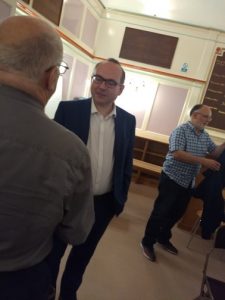
GT as a headteacher said that he was surprised that schools couldn’t choose their own energy providers and that this needed to change
DR suggested investigating community energy schemes
PS suggested investigating those in Frome and Bath where people invest in funds to create renewable energy sources
DR said that there had not been positive attitudes to windfarms locally and this attitude needed changing
MS cautioned that in Cornwall the infrastructure didn’t allow these to input into the national grid however locally we should also look at wave power as we had a high tide twice a day
NG also criticised SDC attitudes to solar panels and felt more could be done on municipal buildings
LR said SCC was selling off all its county farms and lots of land for short term gain which could all have been used positively for the environment
BS pointed to BTCs ownership of the town hall building which was being enhanced floor by floor and rooms and rooves in this large town centre premise could be brought into environmental use.
PS said al lot was down to planning and nothing should be built without proper insulation, geo-thermal systems, ground pumps.
LG was disappointed that the Northgate plans by SDC had no eco-heating sources considered
DR was annoyed that EDF were going to be paid with an extra contribution on every bodies energy bills whereas she would prefer her ‘extra’ money to go instead to a local scheme for local people.
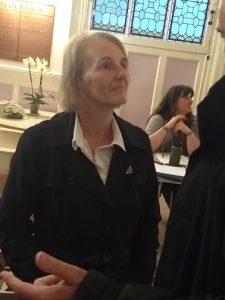
NG reminded people that the Hinkley site could have been a windfarm
SE was concerned because there were counter arguments to everything we had spoken about which often confused people but she had concluded that the ‘little people’ needed to fight harder to make a difference
DR felt a ‘Green Festival’ would be an interesting innovation in the town and a source of information along with artistic and cultural input
PS said it was important for the pace of change to increase. People were being inspired by groups such as Extinction rebellion and by young people like Greta Thunberg
* Plastics Waste -increased recycling-looking at alternatives to plastics-production and disposal
DR urged investigation into the Onion Collective in Watchet where they had a grant for a funghi which ate plastic
JS was concerned about low levels of recycling and felt one issue was that people didn’t understand the process and needed encouragement and information
PS reminded the meeting that it wasn’t just recycling it was ‘re-use’, for instance in the days when milk bottles were returned. Recycling was also a high carbon cost.
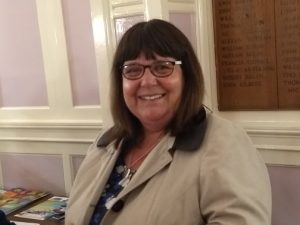
LG was concerned at the massive availability of plastics and felt we should engage with supermarkets , the main culprits, to discuss alternatives. Most people don’t recycle and too much stuff ends in landfill.
NG said there was a large increase in people who weren’t local and who were used to different collection regimes and more needed to be done to inform and educate
DR felt we should work with partners which were trying or claiming to make a difference and pointed to Morrisons who said they were going plastic free. Maybe they would sponsor a festival?
LR said that with more recycling and re-use it would then make sense to go to 3 weekly collections
*Transport-electric cars-public transport -reduction of traffic and the reliance on cars
PS said that if you keep promoting the private car then public transport could never compete yet this was what was needed, a cheap and comprehensive public transport system whilst also looking at car sharing schemes
ST said he believed the railway station was in the wrong place and should have been moved to the cattle market when we had the chance. He felt st John st was a ‘right mess’ and that we had to get over ‘irrational attachments to old buildings’.
DR felt we should pay more attention to cycle provision and encourage cycle routes which didn’t conflict with large vehicles on main roads while taking in green routes such as riverbanks
MS believed we should urge the retention of the EDF park and ride zone at Junction 23
LR said that this would be enhanced to include riverbank cycleways linking to the docks
PS urged that we support the Bridgwater Area Cycling campaign which had just been launched
*Built Environment-deregulation-new homes-sustainable energy on new buildings-insulation-brownfield development/smaller estates-enhance parks and green spaces
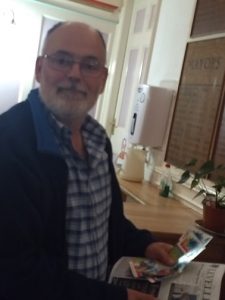
ST said the flood resilience needed improving but chances had been missed, People would gradually be driven onto higher ground
NG believed very little housing had been built in wealthy areas whilst more had been built on flood plains where poorer people lived
DR said that in every survey she had participated in about what young people liked about where they lived the top answer was always ‘green spaces’
GT felt we should encourage the BTC youth forum to engage with climate change and consider how to get the emergency discussed in schools. He felt we should inform children as the catastrophe could be irreversible and a danger to the planet
LG believed the task was like lung cancer – often people were told they had to stop smoking but simply didn’t.
PS said we should follow the example of young people like Greta Thunberg as it was their world that was being destroyed and we had to support them
LG said it wasn’t just a world for people but also for all the creatures that lived here. They have as many emotions and attachments but no voice.
SE said it might be too late for us anyway, but in future children ought to see parks and schools equipped everywhere with bins for waste and recycling
JK said that any species will prioritise itself, which is what we have done but we have to prioritise others at the same time. It was only in the 1960s that we realised we could wipe out entire species. Altruism in the natural world is based on ‘kin selection’.
JM suggested encouragement of water refill stations in local shops to limit disposable plastic bottles
*Commerce and Industry-buy local/shop local-encouraging sustainable, more ethical businesses-reducing consumerism
JM felt we should organise events such as a Green festival or local produce but not just posh ice creams and gins etc but everyday products such as fruit, veg and milk .
JK said markets were an important place to source local products or if you used supermarkets just buy local products in them
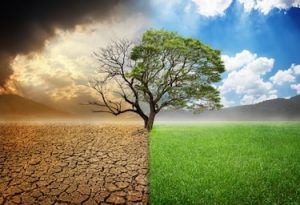
PS believed that Climate Change couldn’t be solved unless we made progress towards more social equality. Social enterprise had to be encouraged whereby people create a business, earn a living and have a social impact
NG blamed lobbyists. Particularly corporate lobbyists for big multi-national businesses
PS believed we were challenging this through forums such as this which were a kind of People’s Assembly in the sense that they could rive change by a parallel ‘coming together’
Recommendations to Bridgwater Town Council
The items on these minutes would be scrutinised by the Climate Change Triad and recommendations drawn out to put to Bridgwater Town Council for action or for further lobbying. LG would devise a future programme of speakers and would welcome suggestions. Items, campaigns, updates, reports and projects would be brought forward to the next Climate Change Forum
Dates of future meetings
Thurs 15 Aug, Mon 14 Oct, Thurs 12 Dec all 7pm
